
 Flash News
Flash News
"Arsonist" arrested for repeatedly setting fires in Vlora (NAME)
Three cars collide in Tirana, one of them catches fire
He abused his minor daughter, this is a 36-year-old man in custody in Fier
Serious in Fier! Father sexually abuses his minor daughter
The phone found in prison is expected to be disassembled, Laert Haxhiu risks isolation in '41 biss'
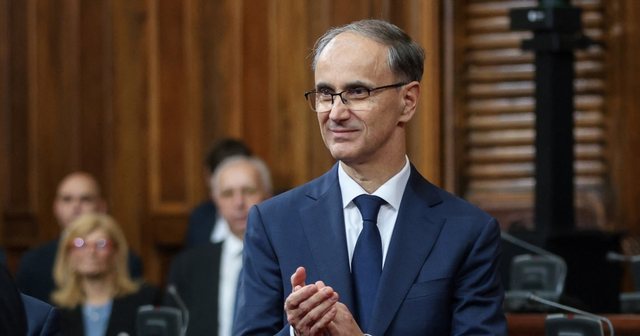
Gjuro Macut became the most searched name in Serbia on April 6, after the country's president, Aleksandar Vučić, nominated him as the country's prime minister.
"I believe that he will bring a different discourse to our political life and help ease tensions. I also think that he will do many good and important things for our country," Vucic said.
The tensions to which Vučić referred prompted the resignation of the current Prime Minister, Miloš Vučević, in January, after three months of student-led protests across Serbia.
Protesters have been demanding accountability, accusing the government of corruption and poor oversight of the reconstruction of the train station, after 16 people lost their lives when a concrete shelter collapsed in Novi Sad in November.
In his first speech to parliament on April 15, Macut said that youth-led protests are a natural expression of discontent, but criticized tactics such as blocking roads and schools.
"When you deny others the right to education and movement, you become a usurper of others' freedoms," he said, pledging support for youth inclusion, but only within the legal and constitutional framework.
He vowed to reopen universities, saying Serbia is "tired of blockades and divisions."
Macut also pledged to maintain Serbia's current foreign policy stance and reiterated continued support for ethnic Serbs in Kosovo.
Since Kosovo's declaration of independence in 2008, which Serbia still does not recognize, there have been ongoing tensions between the two countries.
These tensions are mainly related to ethnic Serbs in northern Kosovo, who do not recognize the authority of Pristina and have attempted to maintain parallel governance structures with the support of Belgrade.
The European Union has been leading the dialogue between the two countries since 2011, with the aim of normalizing relations between them.
Among the 30 cabinet members, 10 are new faces.
The new Minister of Education, Dejan Vuk Stevanović, is the only professor at the Faculty of Education who has publicly opposed the student-led blockade from the beginning.
He is a frequent guest on pro-government media and has criticized both professors and students who demand accountability for the tragedy in Novi Sad.
The new Minister of Information, Boris Bratina, is widely known for his anti-European rhetoric and for advocating a ban on the Pride Parade.
He was filmed shouting "Serbia and Russia - we don't need the European Union!" at a rally in Belgrade in 2009, where he also burned the EU flag.
Officially, Serbia says its strategic goal is membership in the European Union, which is the largest investor in the country.
"I don't have a completely positive view of the EU, and perhaps this is where I differ from others. I wouldn't encourage excessive enthusiasm for the EU, as it has enough problems," Bratina told Radio Free Europe/Radio Liberty's (RFE/RL) Balkan Service on April 14.
The opening of new chapters in Serbia's EU accession negotiations has been blocked since December 2021.
Bratina has called the Pride Parade a "cortege of the sick" and said that such events do not belong to the culture he describes as "deeply heterosexual" in Serbia.
The organizers of the Belgrade Parade had requested the withdrawal of his candidacy.
Like his boss, Bratina is a member of the Movement for the People and the State.
Opposition members and analysts do not expect major changes in Serbia's domestic politics or international position, as the country continues to refuse to join the West in sanctioning Russia over its invasion of Ukraine and maintains historical and cultural ties with Moscow.
Serbia is likely to remain China's preferred partner in the Balkans and continue the "iron friendship," as Vučić describes it, of relations with Beijing.
"The fact that the new prime minister is a member of Vučić's newly formed movement clearly shows that he is not a politically independent candidate," says Zoran Stojiljković, a professor at the Faculty of Political Science in Belgrade.
"He will be a kind of 'puppet' leader, as he lacks significant political experience and does not guarantee autonomy from the Serbian president," he adds.
On April 6, the Speaker of the Serbian Parliament, Ana Brnabić, called Prime Minister Macut "brave, calm and stable – everything the Serbian Government needs now."
Outgoing Prime Minister Miloš Vučević added that Macut is someone "who can open social dialogue."
But some opposition leaders have described his appointment as symbolic.
Dragan Djilas of the Freedom and Justice Party said that Vucic is "buying time" by appointing someone who "will not choose ministers, will not shape policy and will not make decisions."
The Serbian Center Party added that "it doesn't matter who leads the Government when it is clear that Vučić is in charge."/ REL
Latest news


"Arsonist" arrested for repeatedly setting fires in Vlora (NAME)
2025-07-01 16:29:45
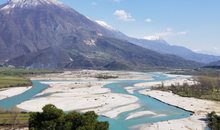
The ecological integrity of the Vjosa River risks remaining on paper
2025-07-01 16:09:40
Heat Headache/ Causes, Symptoms and Measures You Should Take
2025-07-01 16:01:13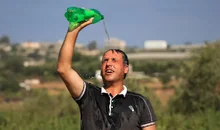
UN: The world must learn to live with heat waves
2025-07-01 15:54:50

Three cars collide in Tirana, one of them catches fire
2025-07-01 15:38:16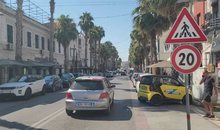
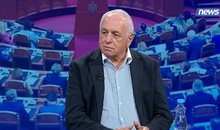
Shehu: Whoever doesn't want Berisha, doesn't want the opposition 'war'!
2025-07-01 15:19:20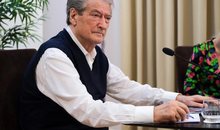
Berisha requests the OSCE Assembly: Help my nation vote freely
2025-07-01 15:11:46
Be careful with medications: Some of them can harm your sex life
2025-07-01 15:00:32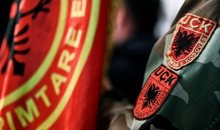
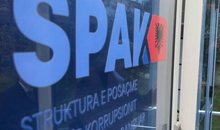
'Golden Bullet'/ Lawyers leave the courtroom, Altin Ndoc's trial postponed again
2025-07-01 14:44:52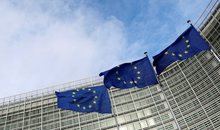
EU changes leadership, Kosovo in a number of places
2025-07-01 14:40:01
Should we drink a lot of water? Experts are surprised: You risk hyponatremia
2025-07-01 14:30:20
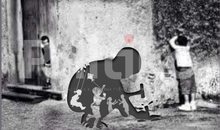
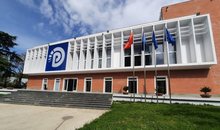
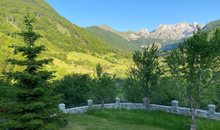
Lëpusha beyond Rama's postcards: A village that is being silently abandoned
2025-07-01 13:41:56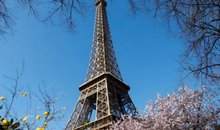
Scorching temperatures in France close the Eiffel Tower
2025-07-01 13:29:35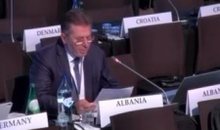
Media: China, Iran and North Korea, a threat to European security
2025-07-01 13:20:12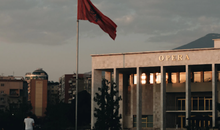
Albania drops in global index: Less calm, more insecure
2025-07-01 13:09:35
Road collapses, 5 villages in Martanesh risk being isolated
2025-07-01 13:03:04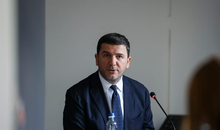
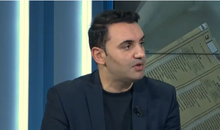
Këlliçi: Opposition action to be decided in September
2025-07-01 12:48:49
Four tips for coping with the heat wave
2025-07-01 12:38:53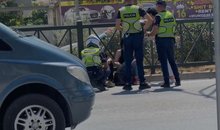
Car hits pedestrian on Transbalkan road
2025-07-01 12:27:09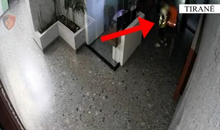
Authors of 9 robberies, Erjon Sopoti and Abdullah Zyberi arrested
2025-07-01 12:15:56
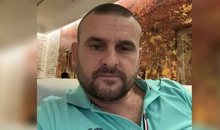
He abused his minor daughter, this is a 36-year-old man in custody in Fier
2025-07-01 11:50:34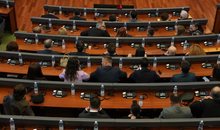
The constitution of the Kosovo Assembly fails for the 40th time
2025-07-01 11:40:08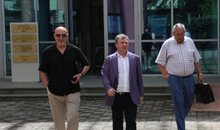


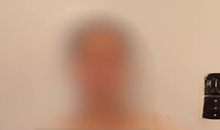
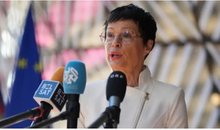
EU confirms support for the Western Balkans
2025-07-01 10:50:45
Serious in Fier! Father sexually abuses his minor daughter
2025-07-01 10:32:33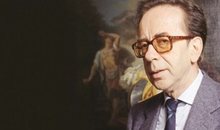
One year since the passing of the colossus of Albanian literature, Ismail Kadare
2025-07-01 10:25:26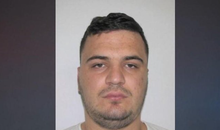
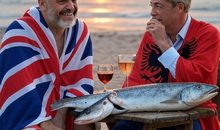

They supplied the 'spaçators' with drugs, two young men are arrested in Tirana
2025-07-01 09:54:09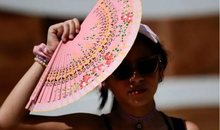
Europe is "scorching", how dangerous are high temperatures?
2025-07-01 09:48:56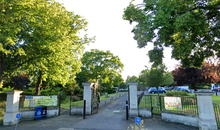
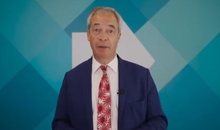
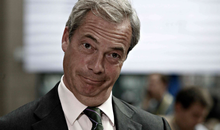
Nigel Farage in Albania: but why?
2025-07-01 09:13:12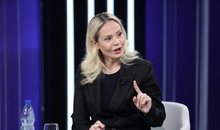
Xama: The "Partizani" dossier is quite weak and without facts!
2025-07-01 09:04:47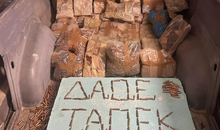
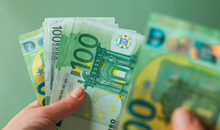
Foreign exchange, the rate at which foreign currencies are sold and bought
2025-07-01 08:35:39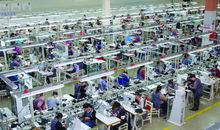
Fabricators again warn of factory closures and job cuts
2025-07-01 08:21:30
Horoscope, what do the stars have in store for you today?
2025-07-01 08:08:59
Scorching hot, temperatures reaching 40°C
2025-07-01 07:57:12
Morning Post/ In 2 lines: What mattered yesterday in Albania
2025-07-01 07:42:59
Recount after May 11, Braho: I had no expectations for massive vote trafficking
2025-06-30 22:54:18

Second hearing on the protected areas law, Zhupa: Unconstitutional and dangerous
2025-06-30 22:18:46



Israel-Iran conflict, Bushati: Albanians should be concerned
2025-06-30 21:32:42

Fuga: Journalism in Albania today in severe crisis
2025-06-30 21:07:11
"There is no room for panic"/ Moore: Serbia does not dare to attack Kosovo!
2025-06-30 20:49:53

Temperatures above 40 degrees, France closes nuclear plants and schools
2025-06-30 20:28:42
Lavrov: NATO is risking self-destruction with new military budget
2025-06-30 20:13:54
Turkey against the "Bektashi state" in Albania: Give up this idea!
2025-06-30 20:03:24

Accused of sexual abuse, producer Diddy awaits court decision
2025-06-30 19:40:44



Kurti and Vučić "face off" tomorrow in Skopje
2025-06-30 18:44:12
Tourism: new season, old problems
2025-06-30 18:27:23


Construction worker dies after falling from scaffolding in Berat
2025-06-30 17:51:44




Almost free housing: East Germany against depopulation
2025-06-30 16:43:06

Hamas says nearly 60 people killed in Gaza as Trump calls for ceasefire
2025-06-30 16:14:15
Drownings on beaches/ Expert Softa: Negligence and incompetence by institutions!
2025-06-30 16:00:03


European ports are overloaded due to Trump tariffs
2025-06-30 15:30:44
The prosecution sends two Korça Municipality officials to trial
2025-06-30 15:19:54

Lezha/ Police impose 3165 administrative measures, handcuff 19 drivers
2025-06-30 14:55:04
Young people leave Albania in search of a more sustainable future
2025-06-30 14:47:52
Record-breaking summer, health threats and preventive measures
2025-06-30 14:36:19


Constitution of the Parliament, Osmani invites political leaders to a meeting
2025-06-30 14:07:54

Heat wave 'invades' Europe, Spain records temperatures up to 46 degrees Celsius
2025-06-30 13:42:02
Accident in Vlora, car hits 2 tourists
2025-06-30 13:32:16
